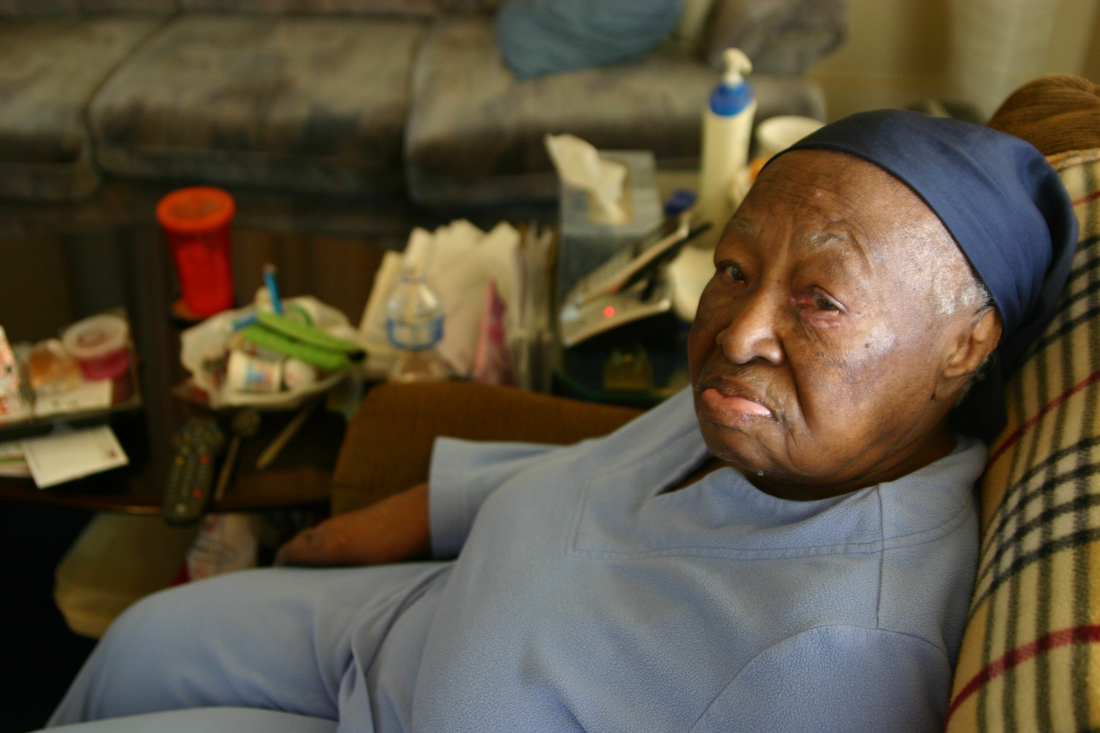Automatic federal funding cuts known as sequestrations are trickling down and coming dangerously close to the stomachs of poor, elderly, and disabled Tarrant County residents who receive home-delivered meals. The measure that took effect March 1 is expected to cut $1.2 trillion over 10 years from government agencies.
And those automatic cuts come on top of previous declines in funding during the recession.
Meals on Wheels Inc. of Tarrant County relies on government grants for about half of its annual $6 million budget, but that funding has dwindled by a total of about $400,000 since 2011.
Now the agency is scrambling to make up the difference.
“We’re trying to let the public know to see if they will help contribute,” executive director Carla Jutson said.
The local Meals on Wheels agency tapped into other grants to offset some of the funding cuts but still needs $125,000 to maintain its current level of service through Sept. 30. Volunteers deliver about 4,000 meals a day to some of Tarrant County’s most vulnerable residents.
“The meals are wonderful,” said Dorothy, an 87-year-old woman who lives alone in South Fort Worth and relies on a walker to get around. “If I didn’t get the meals, some days I wouldn’t know what I’d eat for lunch.”
The lunch she got on Monday consisted of pork, potatoes, okra, sliced tomatoes, a roll, and milk. Volunteers prepare breakfasts and lunches at the Meals on Wheels headquarters near Vickery Boulevard on the South Freeway. Then they package them, load them into vans, and deliver them to drop-off sites around the county. At those sites, other volunteers load the lunches into their personal vehicles and hand-deliver them to clients.
Meals aren’t the only thing delivered. Like many elderly persons, Doris hungers for conversation as well. She gets plenty of attention from volunteer Lisa Moore, who has been delivering lunches every Monday for more than a year. All of her clients are elderly.
“They look forward to having somebody stop by and getting some company,” Moore said.
Moore has had her own problems, including three bouts with cancer. In October, doctors performed a double mastectomy. By January, she was delivering meals again.
“I missed the clients,” she said.
They felt the same way.
“You know those days you weren’t here?” Dorothy said to Moore during a Monday morning visit. “I sure did miss you.”
At another house, Moore carried a lunch to the front porch, knocked, and called out, “Meals on Wheels!” Vera, 88, was sitting in her living room watching television. She invited Moore inside.
“I live here by myself, and I’m handicapped, so I can’t get in there and make meals,” Vera said, nodding toward her kitchen.
Vera, Dorothy, and most other clients are trying their best to stay in their homes rather than move to some sort of group living. Meals on Wheels helps them hang onto their independence a while longer.
In Tarrant County, the agency serves about 4,700 people and delivers about 980,000 meals a year. Service requests have been increasing by about 7 percent a year.
“More and more people are aging and needing our services at a time when the government is reducing the funding,” Jutson said. “It has put us in a bind.”
Each meal costs the agency about $5.50 to prepare and deliver. A donation of $27.50 would feed someone for a week, and $110 would feed someone for a month. In addition to meals, the nonprofit also provides case managers to make referrals for other needs, such as fans, air conditioners, heaters, walkers, commode chairs, and bath rails, as well as for help with utility bills.
Around the country, Meals on Wheels organizations raise their own funds through a combination of private donations and federal grants.
Last May, the Republican-led U.S. House approved profound spending cuts to domestic programs including food stamps, school lunch programs, and Meals on Wheels, but offered no similar cuts for the Pentagon. That sparked criticism from Democrats and some media figures, including MSNBC’s Martin Bashir.
In an interview that was later posted to YouTube, Bashir interviewed Rep. Joe Barton, a Republican from Texas, about agreeing to those cuts. Bashir seemed surprised since Barton has lauded Meals on Wheels for years and even worked as a volunteer at the agency that delivers meals in Johnson and Ellis Counties.
Bashir asked Barton if he planned to vote along with his House colleagues to slash funding for food services to the poor and elderly.
“I’m going to vote to honor our commitment that we made last summer to begin to reduce the gigantic federal deficit … and as a part of that I will be voting for some reductions in programs that are good programs and that quite frankly I support the underlying program,” he said.
Barton objected to Bashir’s use of the word “slash” to describe the proposed cuts.
“I’m not voting to ‘slash’ Meals on Wheels,” he said. “Only 8 percent of Meals on Wheels’ budget comes from federal sources — 92 percent … comes from private contributions and volunteer support.”
In fact, most of the agencies rely more heavily on federal funding. Meals on Wheels of Johnson and Ellis Counties, where Barton volunteers, gets about 40 percent of its $2.2 million annual budget through federal grants. The nonprofit serves about 750 clients each day over a 1,700-square-mile area.
The GOP’s proposed cuts didn’t make it past the Democrat-led Senate vote. Without an agreement, the sequestration took effect and implemented across-the-board cuts evenly split between domestic and defense spending.
“We have been forced to reduce our services here by about 10 percent due to the uncertainty that’s going on,” said Vinsen Faris, executive director of that agency.
Faris is also board chairman for the national association of Meals on Wheels, representing about 5,000 of the agencies in the United States. Only about 1,000 of those are privately supported and receive no government money.
Funding cuts to the other 4,000 agencies could cost taxpayers in the long run, Faris said. Helping people to remain independent in their homes can be much cheaper than institutionalizing them.
“We can serve a person for one year on what it costs to keep them for a day in a nursing home,” he said. “Not only is it the right thing to do, it makes good sense because we’re saving you and me tax dollars. The majority of beds in nursing homes are Medicaid beds. It’s a savings to the public if we are not paying to occupy those Medicaid beds.”














If they can’t take care of themselves, it is time for them to live in group housing where care is much more easily administered. People should not expect to be taken care of in a fashion they desire. Keeping up the illusion of independence is a costly falicy.
It is cheaper to carry a meal to their house than to put them in a group living situation. Cheaper for the family and for taxpayers. Keeping up the illusion of independence is the opposite of a costly “falicy.”
Sure, if all they need is a meal. Group living also provides social interaction. False independence is just another way to create isolation. If they can’t feed themselves, they are not independent, so propping up that belief is foolish.
You have made some good points there. I checked on the web to learn more about the issue and found most
people will go along wit your views on this web site.